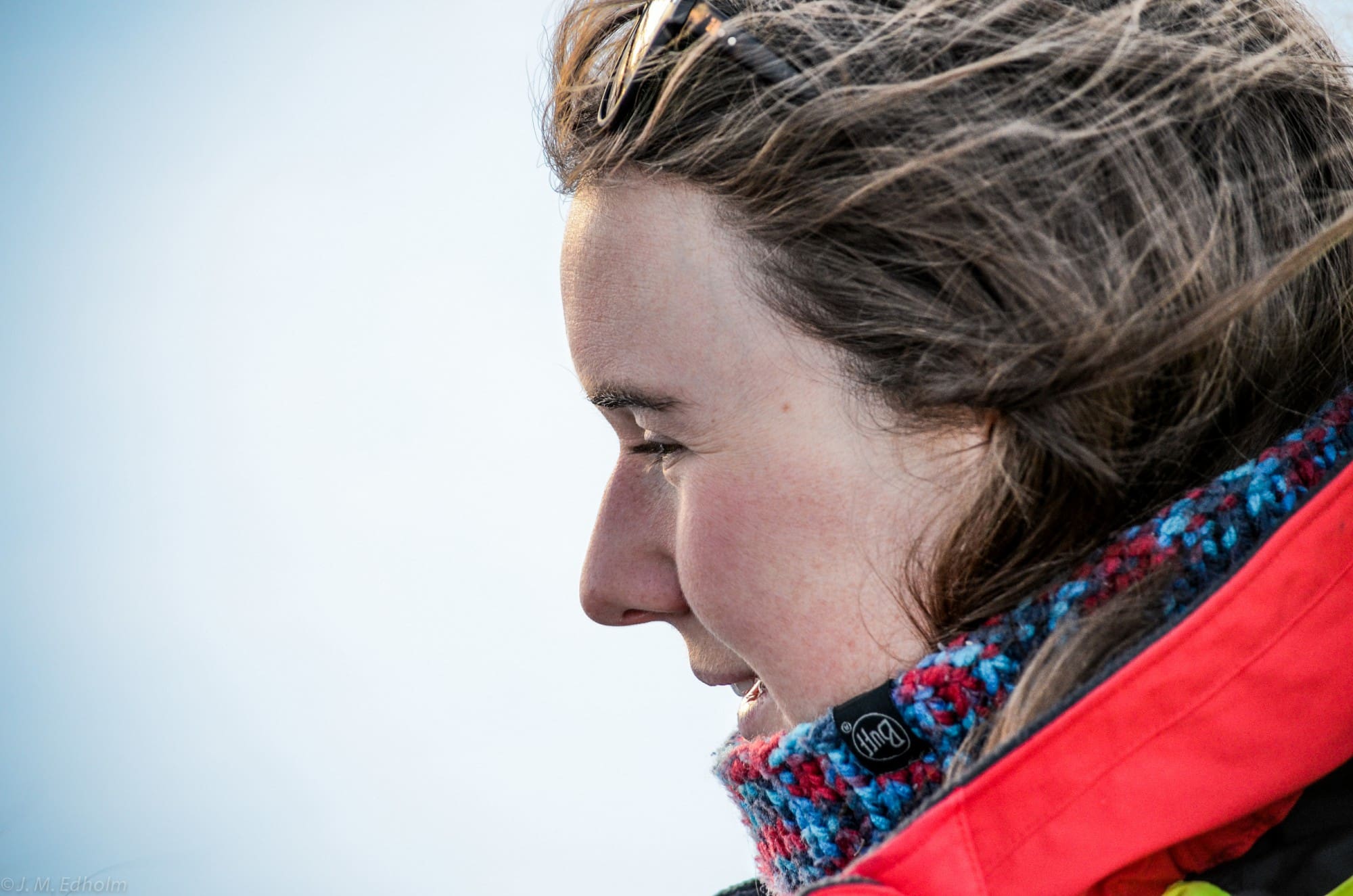 Heather Forrer completed her undergraduate BSc degree at the University of Cape Town (UCT) in 2015, majoring in Ocean and Atmospheric Sciences and Marine Biology. She then went on to complete her Honours degree at UCT in 2016 under the supervision of Dr. Sarah Fawcett where she focused on the nitrogen and oxygen isotopes of nitrate in the summertime Southern Ocean. Her aim was to evaluate the patterns of summertime nutrient utilization across the Atlantic Sector of the Antarctic Zone. Loving everything about Southern Ocean biogeochemical oceanography,
Heather Forrer completed her undergraduate BSc degree at the University of Cape Town (UCT) in 2015, majoring in Ocean and Atmospheric Sciences and Marine Biology. She then went on to complete her Honours degree at UCT in 2016 under the supervision of Dr. Sarah Fawcett where she focused on the nitrogen and oxygen isotopes of nitrate in the summertime Southern Ocean. Her aim was to evaluate the patterns of summertime nutrient utilization across the Atlantic Sector of the Antarctic Zone. Loving everything about Southern Ocean biogeochemical oceanography,  Heather went on to complete a MSc with Dr. Sarah Fawcett and Dr. Angela Knapp (co-advisor, Florida State University (FSU), USA) in 2017 – 2020. Her MSc research focused on a basin-scale approach identifying the drivers of the Indian Sub-Antarctic biological carbon pump, with a special interest in phytoplankton group-specific contributions and the influence of the Island Mass Effect (IME). Heather is now pursuing her PhD at FSU and is taking a deeper look at how the IME enhances carbon export. Her research focuses on the Sub-Antarctic Indian sector as well as Subtropical Pacific, mapping the spatial and temporal carbon export ‘footprint’ of islands across oceans and nutrient regimes.
Heather went on to complete a MSc with Dr. Sarah Fawcett and Dr. Angela Knapp (co-advisor, Florida State University (FSU), USA) in 2017 – 2020. Her MSc research focused on a basin-scale approach identifying the drivers of the Indian Sub-Antarctic biological carbon pump, with a special interest in phytoplankton group-specific contributions and the influence of the Island Mass Effect (IME). Heather is now pursuing her PhD at FSU and is taking a deeper look at how the IME enhances carbon export. Her research focuses on the Sub-Antarctic Indian sector as well as Subtropical Pacific, mapping the spatial and temporal carbon export ‘footprint’ of islands across oceans and nutrient regimes.
In addition to her PhD, Heather is part of the Antarctic Circumnavigation Expedition (ACE) ASAID (air-sea interactions) sub-working group and is a member of the Association of Polar Early Career Scientists South African National Committee (APECSSA). Heather’s work largely falls under the current SANAP Project “A nitrogen cycle view of atmospheric CO2 sequestration in the Antarctic Ocean” (Principal Investigator: Dr. S Fawcett, UCT). Through this, Heather has had the opportunity to participate in a number of research expeditions to the Southern Ocean, present her work at both national and international conferences and attend workshops with international collaborators.
 Born into a family of avid divers, sailors and fisherman, my love for the ocean was instilled in me at a young age. Our dinner table conversations often involve my parents recounting their sailing years on their home-built yacht, reminiscing over past family diving holidays and deciding on which ocean adventure we should embark on next. The vast majority of my childhood holidays were spent wading around rockpools along the South Coast armed with a yellow bucket and red fishing net. My sister and I would collect all the dogfish we managed to coax into our nets and then redistribute them to new rockpool homes based on the size of the fish. Thank goodness the rising tides eventually drove us away and hopefully restored the ecological unrest we most likely caused. This fascination with the small South Coast rockpool ecosystems eventually grew to larger Southeast Asian coral reef biomes in my teenage years. My family immigrated to Vietnam when I was 14, and although moving to a different country was a big culture shock, it opened up a whole new region of marine exploration. Within a couple of months of moving there I became a certified diver and knew that the view from my fogged-up, leaking mask on my first dive had just cemented my future in marine sciences. Upon matriculation, I volunteered for an NGO in southwest Madagascar where I assisted with coral reef studies, looking at both anthropogenic impacts as well as recovery rates from cyclone damage. Knowing that marine sciences was my future, I started my BSc at UCT with a balmy tropical island goal. Well…that was until I met Sarah Fawcett in my 3rd year at UCT… and I quickly traded my sandy feet, beach towel, golden tan dreams for thermal underwear, blisteringly cold winds and the raging Southern Ocean… and have never looked back!
Born into a family of avid divers, sailors and fisherman, my love for the ocean was instilled in me at a young age. Our dinner table conversations often involve my parents recounting their sailing years on their home-built yacht, reminiscing over past family diving holidays and deciding on which ocean adventure we should embark on next. The vast majority of my childhood holidays were spent wading around rockpools along the South Coast armed with a yellow bucket and red fishing net. My sister and I would collect all the dogfish we managed to coax into our nets and then redistribute them to new rockpool homes based on the size of the fish. Thank goodness the rising tides eventually drove us away and hopefully restored the ecological unrest we most likely caused. This fascination with the small South Coast rockpool ecosystems eventually grew to larger Southeast Asian coral reef biomes in my teenage years. My family immigrated to Vietnam when I was 14, and although moving to a different country was a big culture shock, it opened up a whole new region of marine exploration. Within a couple of months of moving there I became a certified diver and knew that the view from my fogged-up, leaking mask on my first dive had just cemented my future in marine sciences. Upon matriculation, I volunteered for an NGO in southwest Madagascar where I assisted with coral reef studies, looking at both anthropogenic impacts as well as recovery rates from cyclone damage. Knowing that marine sciences was my future, I started my BSc at UCT with a balmy tropical island goal. Well…that was until I met Sarah Fawcett in my 3rd year at UCT… and I quickly traded my sandy feet, beach towel, golden tan dreams for thermal underwear, blisteringly cold winds and the raging Southern Ocean… and have never looked back!
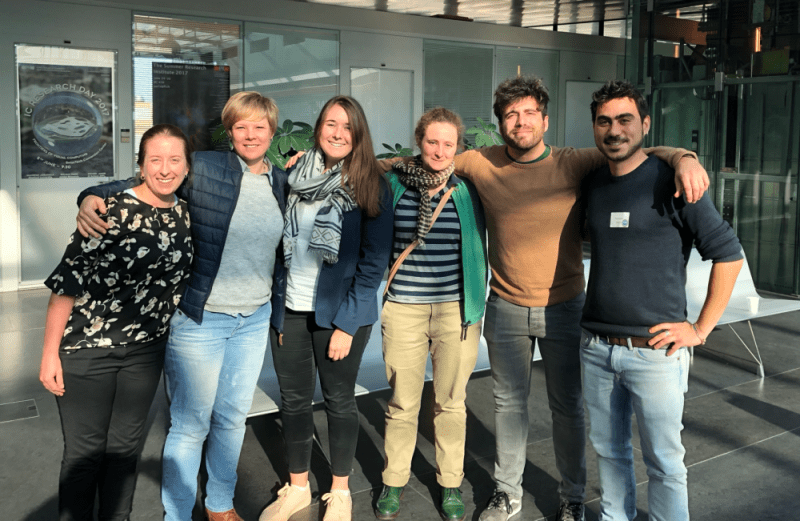
 I love my career in science because of the people and the places. There is such a diverse group of people within the SANAP community and we are all striving towards a common goal – to better understand how the world works. All of our fields are so interconnected and through collaborative efforts, you have the opportunity to work with the most incredible scientists, where you get to share ideas and develop some form of understanding…only to have even more questions! Exploring curiosities and having the freedom of imagination is what drives science forward and when I find fellow scientists who share similar questions, this encourages me to continue pushing boundaries of what we know. My career in science has also taken me to the most amazing places – places I could never dream of going to with another career. From boarding a Russian research vessel in Chile, to sampling the nearshore coastline of the sub-Antarctic island of Kerguelen, to analyzing samples in a lab in the US, to data interpretation at a workshop in the UK to presenting my findings to at a conference in Switzerland… I don’t think there is another career path that would allow me to do all that! Earth Science is a constantly engaging and exciting field to be in. Things never stop… even during a pandemic. The amount of incredible discoveries and papers that have been published in 2020 alone is testament to this. The SANAP community is an impressive force, driving cutting-edge science that is crucial to our global understanding of the past, present and future Earth and is a community I am privileged to be a part of.
I love my career in science because of the people and the places. There is such a diverse group of people within the SANAP community and we are all striving towards a common goal – to better understand how the world works. All of our fields are so interconnected and through collaborative efforts, you have the opportunity to work with the most incredible scientists, where you get to share ideas and develop some form of understanding…only to have even more questions! Exploring curiosities and having the freedom of imagination is what drives science forward and when I find fellow scientists who share similar questions, this encourages me to continue pushing boundaries of what we know. My career in science has also taken me to the most amazing places – places I could never dream of going to with another career. From boarding a Russian research vessel in Chile, to sampling the nearshore coastline of the sub-Antarctic island of Kerguelen, to analyzing samples in a lab in the US, to data interpretation at a workshop in the UK to presenting my findings to at a conference in Switzerland… I don’t think there is another career path that would allow me to do all that! Earth Science is a constantly engaging and exciting field to be in. Things never stop… even during a pandemic. The amount of incredible discoveries and papers that have been published in 2020 alone is testament to this. The SANAP community is an impressive force, driving cutting-edge science that is crucial to our global understanding of the past, present and future Earth and is a community I am privileged to be a part of.

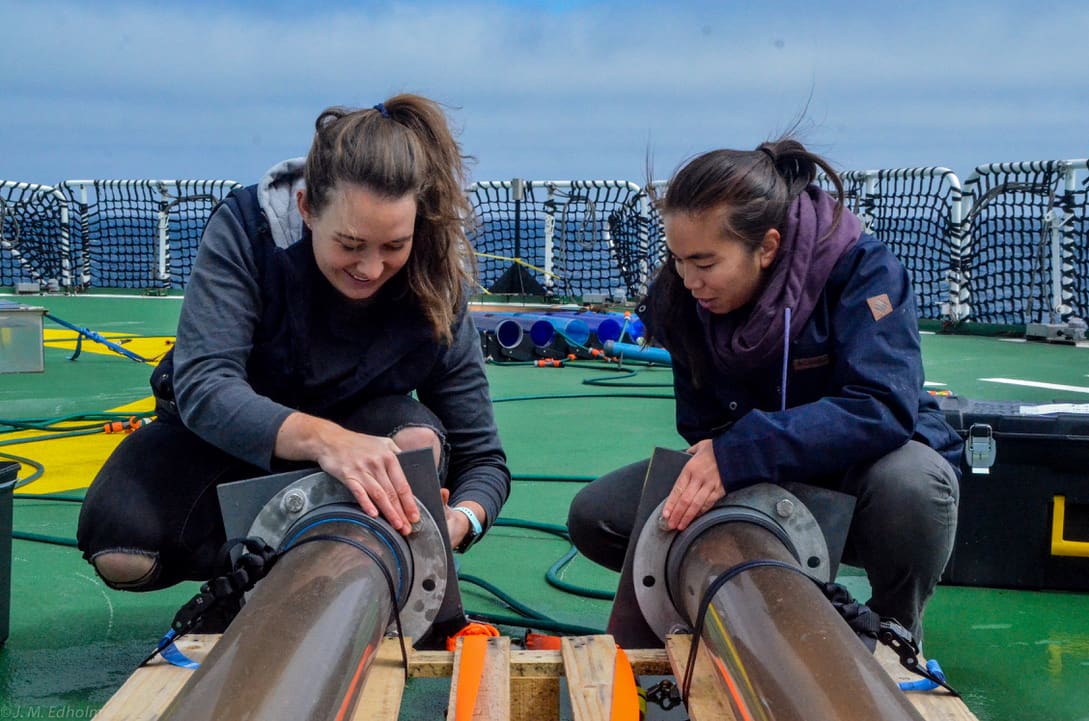
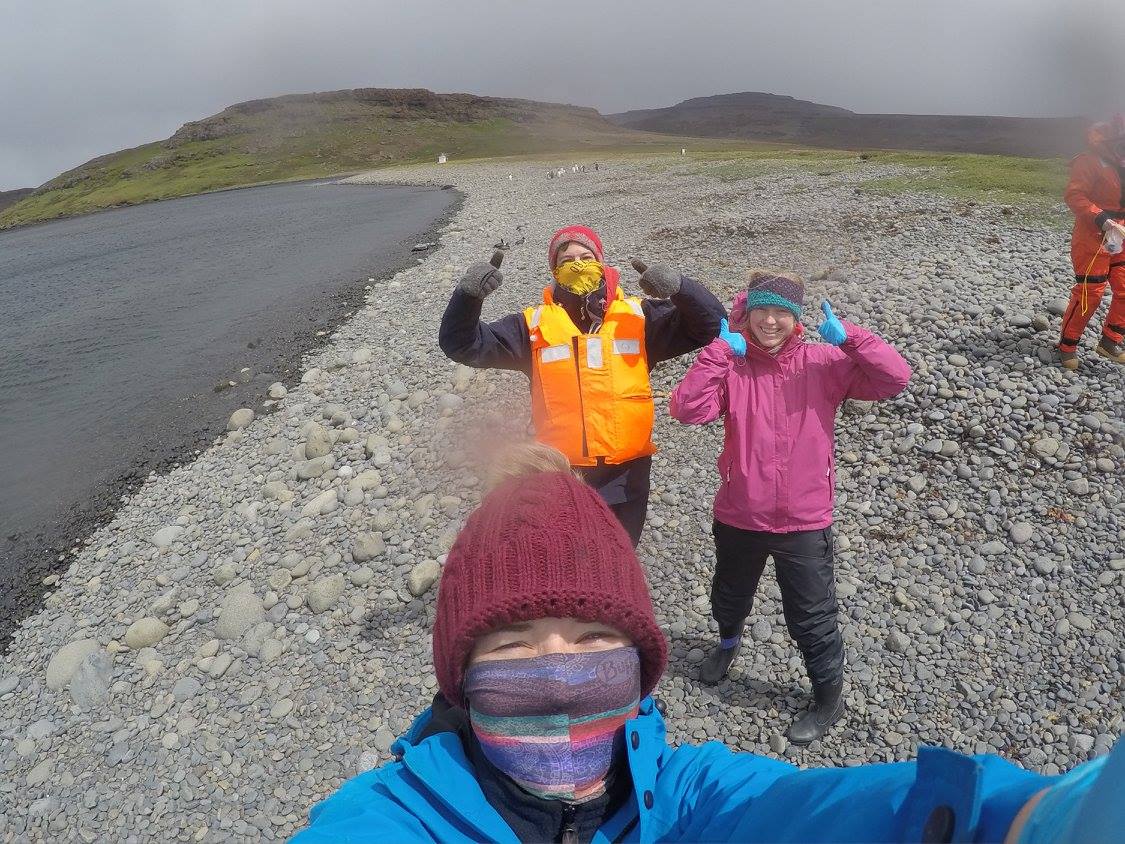 Unlike other career paths, science allows you to follow your passions and ‘immerse’ yourself in different fields. This has allowed me to pursue my interest in Southern Ocean biogeochemical research while being involved in the operational side of Acoustic Doppler Current Profiler (ADCP) and Conductivity Temperature Depth (CTD) sensor deployments and servicing along the South African coastline with the UCT Research Dive Unit. I am happiest when in or on the ocean and to be able to take part in both the research and the operational sides leaves me smiling from ear to ear.
Unlike other career paths, science allows you to follow your passions and ‘immerse’ yourself in different fields. This has allowed me to pursue my interest in Southern Ocean biogeochemical research while being involved in the operational side of Acoustic Doppler Current Profiler (ADCP) and Conductivity Temperature Depth (CTD) sensor deployments and servicing along the South African coastline with the UCT Research Dive Unit. I am happiest when in or on the ocean and to be able to take part in both the research and the operational sides leaves me smiling from ear to ear.
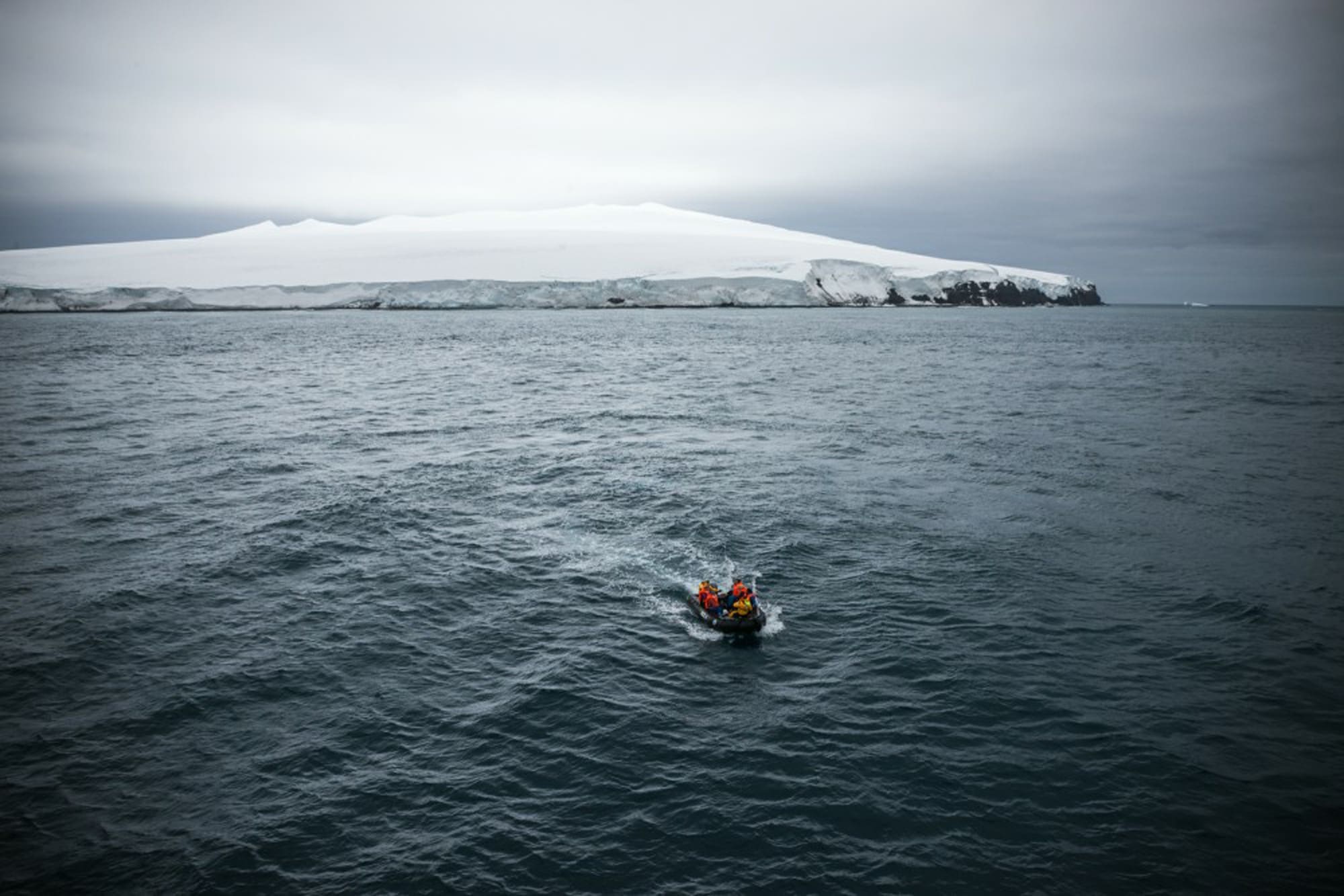

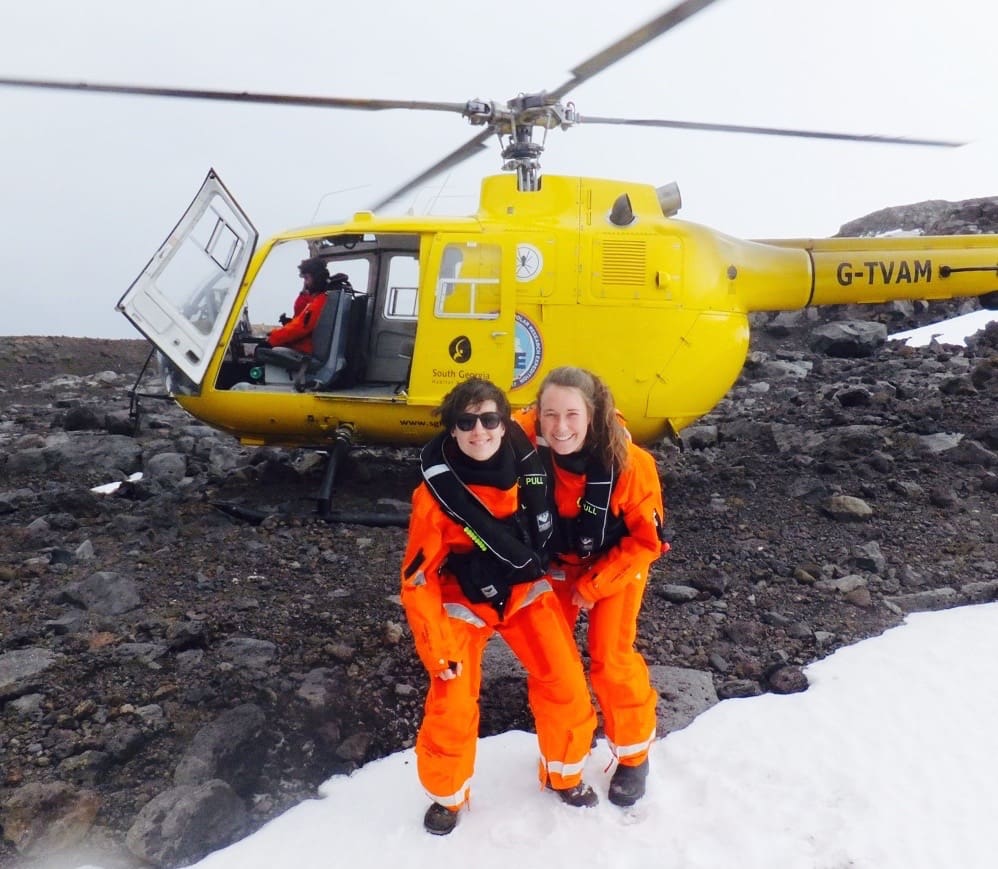 Something that I find incredibly special about a career in science is it is a career your family can be involved in and get excited about. My family have been an amazing source of support throughout my scientific career. They have helped me label over 15,000 sample bottles (the Forrer family bottle labelling production line is something to behold!), load ships, move -80 freezers from East Pier to UCT and create figures for my theses. They have also met me in Switzerland and Australia after workshops or cruises and have read all of my work from beginning to end. Whenever I phone my dad, he always asks “is the ship in town?” and if the answer is “yes” he follows up with “how many bottles do we have to label, when are we loading the ship, how many trailers do we have to tow?” Although I’m still not 100% convinced my parents know exactly what I do, and often hear my mom describing my work to her friends as “the study of whale food that is saving the planet from climate change”, I definitely couldn’t have made it this far without their support, encouragement and enthusiasm.
Something that I find incredibly special about a career in science is it is a career your family can be involved in and get excited about. My family have been an amazing source of support throughout my scientific career. They have helped me label over 15,000 sample bottles (the Forrer family bottle labelling production line is something to behold!), load ships, move -80 freezers from East Pier to UCT and create figures for my theses. They have also met me in Switzerland and Australia after workshops or cruises and have read all of my work from beginning to end. Whenever I phone my dad, he always asks “is the ship in town?” and if the answer is “yes” he follows up with “how many bottles do we have to label, when are we loading the ship, how many trailers do we have to tow?” Although I’m still not 100% convinced my parents know exactly what I do, and often hear my mom describing my work to her friends as “the study of whale food that is saving the planet from climate change”, I definitely couldn’t have made it this far without their support, encouragement and enthusiasm.
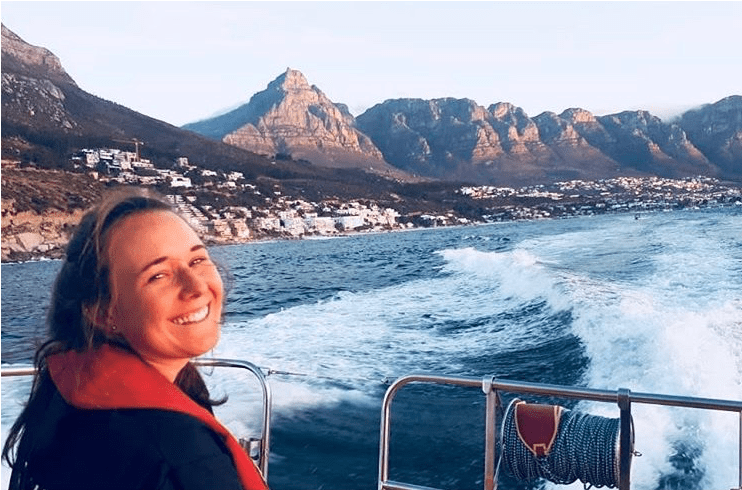 To end, I thought I should share three tips for anyone about to embark on their scientific career:
To end, I thought I should share three tips for anyone about to embark on their scientific career:
- Never be afraid to ask questions… and ask a lot of them! It will help you grow as a scientist, develop your curiosities and make you even more enthusiastic about your work. By asking ALL the questions, I inevitably designed my own PhD research.
- Choose your supervisor carefully and build a good working relationship them. If you are starting a PhD, this working relationship needs to last 5 years, so make it work from the start. Supervisors are only human and can only do so much, the vast majority of the work and drive needs to come from you. I am personally very lucky to have great relationships with both of my supervisors. I started working with Sarah in my Honours year and she is now part of my PhD committee. By the time I complete my PhD, we would have been working together for close to 10 years!
- A science degree takes a village… so build your ‘scientific village’. While there is an ‘i’ in science, it is not an individual pursuit. From sample collection, lab analyses, data interpretation and theses writing, it is all about teamwork. So, start building your network. This can involve fellow grad students, people you meet on research expeditions or at conferences, mentors from other universities etc. While they might not directly participate in your research, they help keep you motivated and excited about your work.
 With that, I would like to acknowledge and thank my SANAP and greater South African ‘scientific village’; Dr. Sarah Fawcett (UCT), for your encouragement and support over the last 5 years. Ruan Parrott, Luca Stirnimann and the rest of the Fawcett Lab group for help with sample collection and analyses. Dr. Rosemary Dorrington (RU) and Dr. Tommy Bornman (SAEON) for all your contributions to ACE and the fun workshops. Dr. Bettine van Vuuren (UJ) for always encouraging me to “Just apply! What’s the worst that can happen?”. Cashifa Karriem for holding the UCT Oceanography Department together and helping with the admin side. Tahlia Henry for spending hours driving the CTD to the ocean depths for my deep water samples and for helping me with my (many) technical questions. Dr. Tommy Ryan-Keogh (CSIR) and Dr. Thato Mtshali (CSIR) for showing me the ropes when it comes to trace metal sampling and for helping me design my sampling schemes. Pieter Truter, Hazel Little-Leighton and the rest of the UCT Dive Unit for helping me pack for cruises, make incubators, service pumps and for always braving the icy Atlantic waters with me. And last but certainly not least, the APECSSA National Committee for our fun catch-ups and shared passion for collaboration between young researchers on a local and international level.
With that, I would like to acknowledge and thank my SANAP and greater South African ‘scientific village’; Dr. Sarah Fawcett (UCT), for your encouragement and support over the last 5 years. Ruan Parrott, Luca Stirnimann and the rest of the Fawcett Lab group for help with sample collection and analyses. Dr. Rosemary Dorrington (RU) and Dr. Tommy Bornman (SAEON) for all your contributions to ACE and the fun workshops. Dr. Bettine van Vuuren (UJ) for always encouraging me to “Just apply! What’s the worst that can happen?”. Cashifa Karriem for holding the UCT Oceanography Department together and helping with the admin side. Tahlia Henry for spending hours driving the CTD to the ocean depths for my deep water samples and for helping me with my (many) technical questions. Dr. Tommy Ryan-Keogh (CSIR) and Dr. Thato Mtshali (CSIR) for showing me the ropes when it comes to trace metal sampling and for helping me design my sampling schemes. Pieter Truter, Hazel Little-Leighton and the rest of the UCT Dive Unit for helping me pack for cruises, make incubators, service pumps and for always braving the icy Atlantic waters with me. And last but certainly not least, the APECSSA National Committee for our fun catch-ups and shared passion for collaboration between young researchers on a local and international level.
(Text and images supplied by Heather Forrer)






